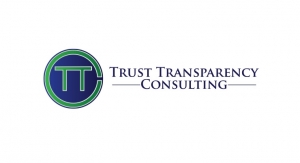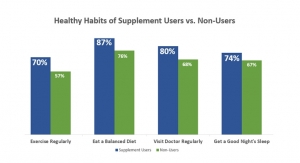02.25.19
A majority of U.S.-based dietitians take dietary supplements regularly, according to a survey from Trust Transparency Center. These results align with the majority of Americans who take dietary supplements and reinforce that supplements have a role to play in health regimens, the firm said.
The survey of 200 dietitians found that:
"These results are encouraging since they indicate another powerful influencer group is ready to hear more about supplement science and benefits," said Len Monheit, managing partner, Trust Transparency Center. "Many categories with emerging science, like prebiotics and curcumin should take advantage of this opportunity. It is definitely worth industry's time to educate dietitians, particularly on specialty supplements as they're not as familiar with those as with other categories."
The survey of 200 dietitians found that:
- The majority of dietitians are taking supplements themselves on a regular basis and 76% take supplements at least four times per week
- 67% recommend a mix of food and supplements and 76% of dietitians who prefer to recommend a mix of food and supplements also recommend some type of supplement to 40% or more of their patients
- Dietitians are recommending a wide range of supplements: 46% mentioned meal replacement and/or protein; 37% listed vitamin D; 47% mentioned multivitamin or MVI (multivitamin injection); 9 out of 10 dietitians are recommending prebiotics to at least some of their patients; 76% of frequent curcumin/turmeric recommenders are very to extremely familiar with its usage (one in four are actively looking to learn more)
- 52% discuss supplements with their patients when preparing nutritional recommendations
- Dietitians are overwhelmingly in favor of labeling synthetic supplements with 86% advocating labeling at all times
- Frequent recommenders of a particular supplement are generally confident in their knowledge—even if they don't know everything they should/could
"These results are encouraging since they indicate another powerful influencer group is ready to hear more about supplement science and benefits," said Len Monheit, managing partner, Trust Transparency Center. "Many categories with emerging science, like prebiotics and curcumin should take advantage of this opportunity. It is definitely worth industry's time to educate dietitians, particularly on specialty supplements as they're not as familiar with those as with other categories."



























